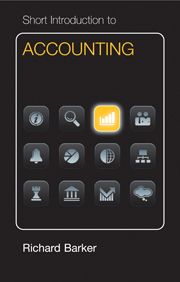Book contents
8 - Building a corporate valuation model
from Part II - Introduction to Part II
Published online by Cambridge University Press: 05 June 2014
Summary
Building a Corporate Valuation Model
We know from previous chapters that the financial statements record such things as how a business has been financed, what investments it has made in assets and, over time, how much profit it has earned from those assets. The financial statements can therefore be described as historical: they report what has happened, and not what is expected to happen. This historical role does not, however, imply that accounting information is not relevant to understanding, and making decisions about, what is expected to happen in the future. Indeed, the opposite is very much the case, and in this chapter we will explore a forward-looking role for accounting information. In particular, we will build a model in which forecasts of financial statement data are used to determine the valuation of a company.
- Type
- Chapter
- Information
- Short Introduction to Accounting , pp. 128 - 141Publisher: Cambridge University PressPrint publication year: 2011



